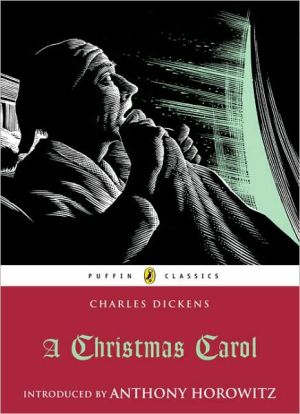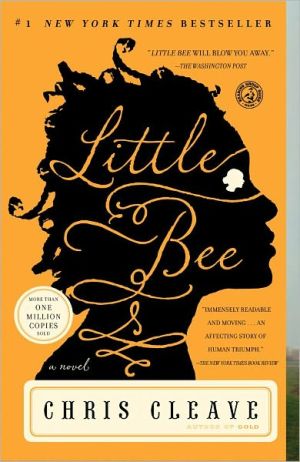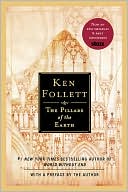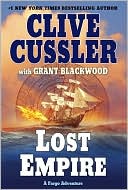Christmas Carol
On Christmas Eve, Scrooge sits in his house with not a kind word for anyone; he just wants to be left alone until the “humbug” of Christmas is over. But four ghostly visitors—his former business partner, followed by the Ghosts of Christmas Past, Christmas Present, and Christmas Yet to Come—show him the error of his ways, and by the time Christmas Day dawns, Scrooge is a changed person.\ \ \ A miser learns the true meaning of Christmas when three ghostly visitors review...
Search in google:
One of the best-loved and most quoted stories of "the man who invented Christmas"-English writer Charles Dickens-A Christmas Carol debuted in 1843 and has touched millions of hearts since. Cruel miser Ebeneezer Scrooge has never met a shilling he doesn't like. . .and hardly a man he does. And he hates Christmas most of all. When Scrooge is visited by his old partner, Jacob Marley, and the ghosts of Christmas Past, Christmas Present, and Christmas Yet to Come, he learns eternal lessons of charity, kindness, and goodwill. Experience a true Victorian Christmas!Publishers WeeklyThis reissued recording of Stewart's touted Broadway performance might prove to be the enduring interpretation of Dickens's beloved tale of the miserly Ebenezer Scrooge and the ghosts of past, present, and future who catalyze his transformation. In a production stripped of sound effects, Stewart's theatrical talents take center stage. Reading with a voice that it is at once commanding and fragile, he creates a Scrooge of unexpected complexity and pathos. A spare and dazzling listen that might be the best rendition of the classic since the 1951 Alistair Sim production. (Nov.)
Christmas Carol\ \ By Charles Dickens \ Stewart, Tabori and Chang\ Copyright © 1997 Charles Dickens\ All right reserved. \ ISBN: 1556706480 \ \ \ Chapter One\ MARLEY was dead: to begin with. There is no doubt whatever about that. The register of his burial was signed by the clergyman, the clerk, the undertaker, and the chief mourner. Scrooge signed it: and Scrooge's name was good upon 'Change, for anything he chose to put his hand to. Old Marley was as dead as a door-nail.\ Mind! I don't mean to say that I know, of my own knowledge, what there is particularly dead about a door-nail. I might have been inclined, myself, to regard a coffin-nail as the deadest piece of ironmongery in the trade. But the wisdom of our ancestors is in the simile; and my unhallowed hands shall not disturb it, or the Country's done for. You will therefore permit me to repeat, emphatically, that Marley was as dead as a door-nail.\ Scrooge knew he was dead? Of course he did. How could it be otherwise? Scrooge and he were partners for I don't know how many years. Scrooge was his sole executor, his sole administrator, his sole assign, his sole residuary legatee, his sole friend and sole mourner. And even Scrooge was not so dreadfully cut up by the sad event, but that he was an excellent man of business on the very day of the funeral, and solemnised it with an undoubted bargain.\ The mention of Marley's funeral brings me back to the point I started from. There is no doubt that Marley was dead. This must be distinctly understood, or nothing wonderful can come of the story I am going to relate. If we were not perfectly convinced that Hamlet's Father died before the play began, there would be nothing more remarkable in his taking a stroll at night, in an easterly wind, upon his own ramparts, than there would be in any other middle-aged gentleman rashly turning out after dark in a breezy spot-say Saint Paul's Churchyard for instance-literally to astonish his son's weak mind.\ Scrooge never painted out Old Marley's name. There it stood, years afterwards, above the warehouse door: Scrooge and Marley. The firm was known as Scrooge and Marley. Sometimes people new to the business called Scrooge Scrooge, and sometimes Marley, but he answered to both names: it was all the same to him.\ Oh! but he was a tight-fisted hand at the grindstone, Scrooge! a squeezing, wrenching, grasping, scraping, clutching, covetous old sinner! Hard and sharp as flint, from which no steel had ever struck out generous fire; secret, and self-contained, and solitary as an oyster. The cold within him froze his old features, nipped his pointed nose, shrivelled his cheek, stiffened his gait; made his eyes red, his thin lips blue; and spoke out shrewdly in his grating voice. A frosty rime was on his head, and on his eyebrows, and his wiry chin. He carried his own low temperature always about with him; he iced his office in the dog-days; and didn't thaw it one degree at Christmas.\ External heat and cold had little influence on Scrooge. No warmth could warm, nor wintry weather chill him. No wind that blew was bitterer than he, no falling snow was more intent upon its purpose, no pelting rain less open to entreaty. Foul weather didn't know where to have him. The heaviest rain, and snow, and hail, and sleet, could boast of the advantage over him in only one respect. They often 'came down' handsomely, and Scrooge never did.\ Nobody ever stopped him in the street to say, with gladsome looks, 'My dear Scrooge, how are you? when will you come to see me?' No beggars implored him to bestow a trifle, no children asked him what it was 'oclock, no man or woman ever once in all his life inquired the way to such and such a place, of Scrooge. Even the blindmen's dogs appeared to know him; and when they saw him coming on, would tug their owners into doorways and up courts; and then would wag their tails as though they said, 'no eye at all is better than an evil eye, dark master!'\ But what did Scrooge care? It was the very thing he liked. To edge his way along the crowded paths of life, warning all human sympathy to keep its distance, was what the knowing ones call 'nuts' to Scrooge.\ Once upon a time-of all the good days in the year, on Christmas Eve-old Scrooge sat busy in his counting-house. It was cold, bleak, biting weather: foggy withal: and he could hear the people in the court outside, go wheezing up and down, beating their hands upon their breasts, and stamping their feet upon the pavement-stones to warm them. The city clocks had only just gone three, but it was quite dark already: it had not been light all day: and candles were flaring in the windows of the neighbouring offices, like ruddy smears upon the palpable brown air. The fog came pouring in at every chink and keyhole, and was so dense without, that although the court was of the narrowest, the houses opposite were mere phantoms. To see the dingy cloud come drooping down, obscuring everything, one might have thought that Nature lived hard by, and was brewing on a large scale.\ The door of Scrooge's counting-house was open that he might keep his eye upon his clerk, who in a dismal little cell beyond, a sort of tank, was copying letters. Scrooge had a very small fire, but the clerk's fire was so very much smaller that it looked like one coal. But he couldn't replenish it, for Scrooge kept the coal-box in his own room; and so surely as the clerk came in with the shovel, the master predicted that it would be necessary for them to part. Wherefore the clerk put on his white comforter, and tried to warm himself at the candle; in which effort, not being a man of a strong imagination, he failed.\ Continues...\ \ \ \ Excerpted from Christmas Carol by Charles Dickens Copyright © 1997 by Charles Dickens. Excerpted by permission.\ All rights reserved. No part of this excerpt may be reproduced or reprinted without permission in writing from the publisher.\ Excerpts are provided by Dial-A-Book Inc. solely for the personal use of visitors to this web site. \ \
Table of Contents Stanza 1: Marley’s Ghost.................................................................9 Stanza 2: The First of the Three Spirits...........................................47 Stanza 3: The Second of the Three Spirits........................................81 Stanza 4: The Last of the Spirits...................................................125 Stanza 5: The End of It................................................................157
\ Publishers WeeklyThis reissued recording of Stewart's touted Broadway performance might prove to be the enduring interpretation of Dickens's beloved tale of the miserly Ebenezer Scrooge and the ghosts of past, present, and future who catalyze his transformation. In a production stripped of sound effects, Stewart's theatrical talents take center stage. Reading with a voice that it is at once commanding and fragile, he creates a Scrooge of unexpected complexity and pathos. A spare and dazzling listen that might be the best rendition of the classic since the 1951 Alistair Sim production. (Nov.)\ \ \ \ \ School Library JournalGr 3 Up–Dickens’s cautionary tale of an embittered, stingy old man learning to be a happier, more giving person thanks to the intervention of four ghosts has long been fodder for holiday collections. From its stark opening spread (“MARLEY WAS DEAD”) to the final one with its much more cheerful winter scene, this year’s version, illustrated in Helquist’s darkly comic style, is one of the best. Some of that credit must go to Greenhut, who provided the abridgment. Sacrificing none of Dickens’s rich language, this retelling reads beautifully. The artist uses watercolor, pencil, and pastel to create cinematic artwork that contains amusing details; additionally, there are a number of pen-and-ink vignettes that help set the scenes. A winning combination of sparkling prose and exciting art.–Mara Alpert, Los Angeles Public Library\ \ \ Sunday ExpressA sure-fire tear-jerker. At one public reading by Dickens in Boston, there were 'so many pocket handkerchiefs it looked as if a snowstorm had gotten into the hall.\ \ \ \ \ TimesIt has it all: a spooky ghost story, a heartwarming redemption, and a great plot with a satisfyingly ending.\ \








